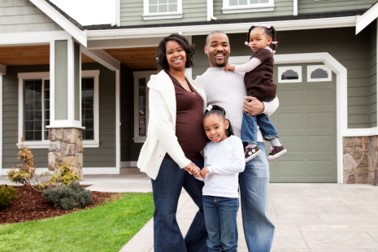 Having a family means you have a lot to keep up with. Homework, bath time, bedtime and screen monitoring to name a few. Sometimes, your focus on your kids means you can’t devote as much time as you want to home improvement. Still, what’s likely one of your closest-held values is to create a safe, secure living environment. That means taking care of the home.
Having a family means you have a lot to keep up with. Homework, bath time, bedtime and screen monitoring to name a few. Sometimes, your focus on your kids means you can’t devote as much time as you want to home improvement. Still, what’s likely one of your closest-held values is to create a safe, secure living environment. That means taking care of the home.
However, if the home is not yours, you have to consider the role your family plays in the house. Renters have to abide by safety rules and regulations in their homes. This is because a landlord or manager owns the home. The renter simply has permission to use it as long as they take care of it. Therefore, when families move in, rental needs and responsibilities change.
Young children need protection in the home. Yet, they also need to learn responsibility for taking care of it. If you are planning to move into a rental home, think about the ways you need to address kids living there.
Leasing Rules for Families with Children
Everyone deserves to live in a safe, clean environment. As a result, the law prohibits landlords from discriminating against families with children. So, your landlord cannot deny your application to move just because your kids will move in, too.
Nevertheless, this is not a hard and fast rule. Landlords often have a right to place occupancy limits on the properties they rent. One reason for these laws is because they provide health and sanitation regulations. Usually, occupancy limits depend on the number of bedrooms, floor space and ages of people living in them.
Here's a simple example. Let’s say a family of five wants to move into a one bedroom apartment. Based on local law, the landlord might be able to refuse this request, because of the number of people who will occupy the space. The landlord might only allow this larger family to move into a two-bedroom space.
Even so, landlords and renters must know their responsibilities under local housing law. If the landlord denies an application unfairly, this might violate the law. Different locations likely have different occupancy laws. Renters should check local statutes to see if landlords have a right to institute limits. If you feel you face unfair discrimination from your landlord, you have a legal recourse.
Responsibilities for Children in Rental Homes
Yes, a rental property generally is yours to use as you wish. However, most renters do not have unlimited leeway with properties. Remember, you share custody with the landlord. Therefore, you must respect the landlord’s right to keep the property in good shape. Every occupant, including kids, have a responsibility to the property.
This does not mean kids should face punishment for any mistake they make that might cause damage. For example, a three-year-old who colors on the wall made a completely innocent mistake. It will likely be very easy to fix. Nevertheless, parents should do what they can to keep the potential for child damage to a minimum. It’ll likely save you and your landlords a lot of hassle and potential bad feelings. Setting clear expectations for your child will likely help keep damage claims low.
In cases of property damage by tenants, including children, the law might come into play again. Landlords might not be able to evict tenants because they accidentally cause damage. However, the tenant might still have to pay to fix the damage. Again, the law is tricky. Sometimes, excessive damage can indeed lead to eviction. Also, if tenants intentionally damage the property, such as through vandalism, landlords can likely evict. Renters should check their leases and talk to their landlords to see what responsibility they have for damage.
Insuring Children in Rental Home
One of the best ways to assume responsibility for your family in your rental is to get Atlanta renters insurance. Your policy should reflect the monetary value and risks that you and your kids present.
Liability coverage covers property damage you or your kids might cause others. Because more people might create a higher risk of damage, you might need higher liability limits. For example, if you cause severe property damage in the home, you might need to use your policy to pay for the repairs.
The good news is that your liability coverage can likely cover you in more places than just your home. If your child hits a baseball through a neighbor's window, you might be able to use your policy to pay for the damage.
Therefore, work with your insurance agent to get appropriate renters coverage. Your landlord might require certain levels of coverage. So, always check your lease before enrolling in protection. It might serve as your guideline. Still, your policy shouldn’t be an excuse not to assume full responsibility on the property. Work to make the home a safe, secure property for you and your kids.